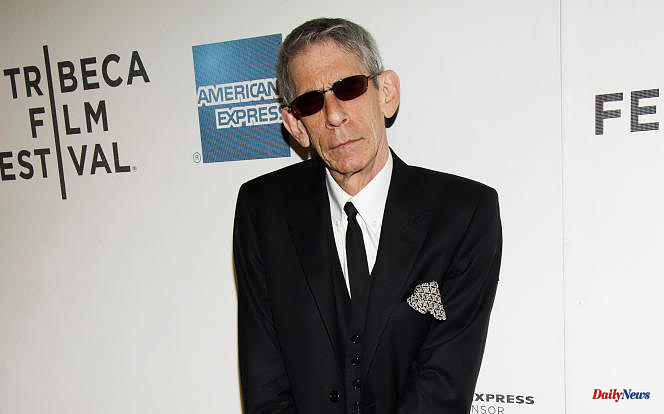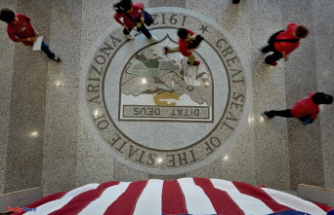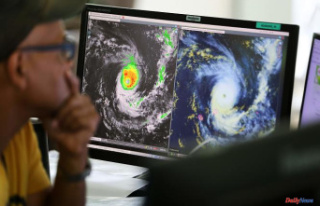American comedian Richard Belzer, best known for having played John Munch in Homicide and New York, special unit, died on Sunday February 19, at the age of 78, at his home in Beaulieu-sur-Mer, in the south of France, announced his longtime friend Bill Scheft. The latter, a writer who was working on a documentary about Richard Belzer, said there was no known cause of death, but the comedian had had circulatory and respiratory problems. Actor Henry Winkler, cousin of Richard Belzer, tweeted: "Rest in peace Richard".
For more than two decades and across ten series – including appearances on 30 Rock and Arrested Development – Richard Belzer has played the role of a cantankerous and wise crime detective prone to conspiracy theories. He first played the role of Munch in an episode of Homicide in 1993, and played him for the last time in 2016 in Law & Order: SVU.
In reality, Richard Belzer never auditioned for the role. After hearing him on "The Howard Stern Show", executive producer Barry Levinson brought in the comedian to read the part. “I will never be a detective. But if I was, that's how I would be, Belzer once said. They address all my anti-establishment paranoia and dissent, and my conspiracy theories. So it was really fun for me. A dream, really. »
From that unlikely start, Belzer's Munch, sporting his sunglasses on the small screen for more than two decades, would go on to become one of television's longest-lived characters. In 2008, Belzer published the novel I Am Not a Cop! ("I'm not a cop!") with Michael Ian Black. He has also participated in the writing of several conspiracy theory books, on topics such as the assassination of President John F. Kennedy and Malaysia Airlines Flight 370.
A childhood marked by violence
Born in Bridgeport, Conn., Mr. Belzer says he was drawn to comedy during his violent childhood; he and his older brother, Len, were beaten by their mother. He did impersonations of his childhood idol, Jerry Lewis. "My kitchen is the hardest room I've ever worked in," Richard Belzer told People magazine in 1993.
After being fired from Dean Junior College, Massachusetts, Richard Belzer embarked on a series of stand-up comedy in New York City in 1972. He became a regular performer and emcee of Catch a Rising Star, a chain of comedy clubs. He made his big-screen debut in Ken Shapiro's 1974 film The Groove Tube, a television satire starring Chevy Chase, a film inspired by the comedy group Channel One, of which Belzer was a member.
Before "Saturday Night Live" (SNL) changed the New York comedy scene, Belzer performed with John Belushi, Gilda Radner, Bill Murray and others on the National Lampoon Radio Hour. In 1975, he became the hall manager of the brand new "SNL", then, gradually, one of the best "stand-uppers" of the time. He was best known for his biting, cynical attitude and his witty, sometimes combative, contact with the public.
"My style evolved from when I was dealing with drunk people at noon, one o'clock, two o'clock in the morning and trying to be like an alchemist, drawing inspiration from the thread of their lives to turn it into golden jokes," Belzer told Terry Gross on "Fresh Air."
Richard Belzer would later write an irreverent book, How to Be a Stand-Up Comic, in which he gave advice on such topics as how to apologize to Frank Sinatra when you made fun of him on stage or how to deal with rowdies. One of his favorite lines was, "I have a microphone. You have a beer. God has a plan, and you're not part of it. »
Richard Belzer often played the role of a stand-up comedian in the cinema, notably in Fame, during the 1980s, and Scarface, in 1983. He had small roles here and there, notably in Night Shift, in 1982 , and Fletch Lives, in 1989.












